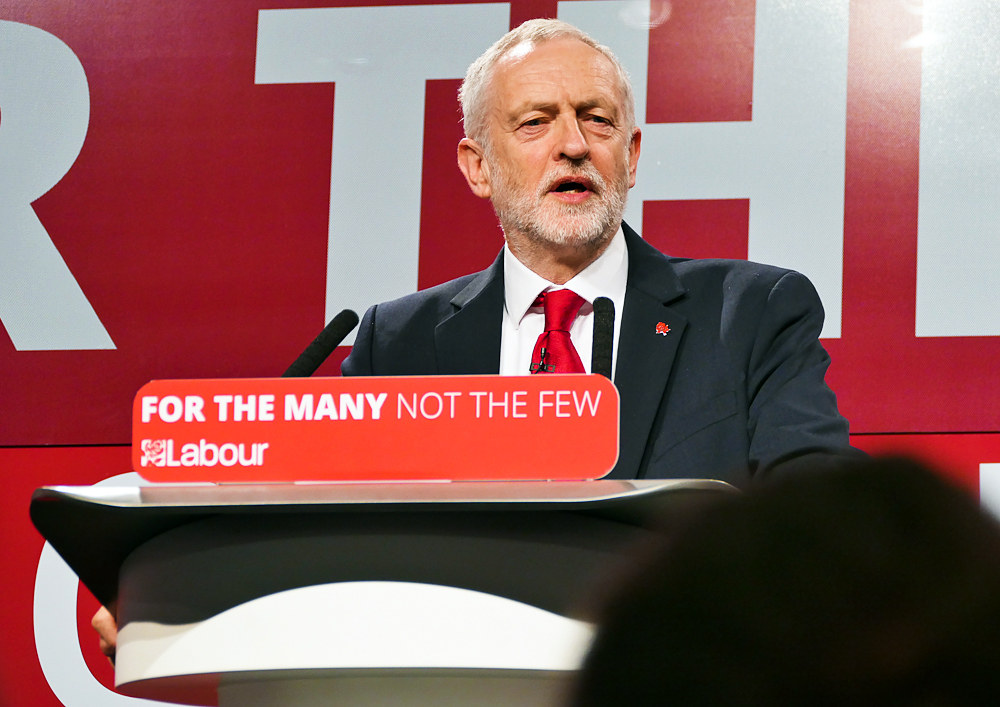LONDON (ViaNews) – Negotiations concerning the future political and economic relationship between the UK and the EU have been the focus of news reporting in recent weeks, as negotiations over Brexit are currently underway.
The Labour party had backed the Remain campaign and has recently strengthened its parliamentary position in the 2017 election, which entails a more salient position concerning the negotiations with the European Union. In its party manifesto on Brexit, Labour promises to accept the referendum result and will put the national interest first. The manifesto states that jobs and living standards are a priority, but Labour wants a close relationship with the EU and Parliament is supposed to have control over the Brexit negotiations.
Labour wants to ensure that breaking with EU law will not be used to deregulate markets in the UK or weaken workers’ rights in any way. Furthermore, Labour wants to retain the benefits of access to the single market and the customs union, and a Labour government would guarantee existing rights for all EU nationals and ensure that UK citizens have reciprocal rights in the EU.
The party calls for continued cooperation on climate change, the European refugee crisis, and counter-terrorism, as well as cooperation in research and development. In this vein, Labour also calls for a renewed membership in Eurojust and Europol to ensure national safety. They want to create an equivalent membership in EURATOM and the European Medicines Agency. Furthermore, Labour wants to secure continued market access to EU for agricultural producers while also securing the highest standards of food quality and welfare.
Labour contends that when exiting the EU, freedom of movement will end – but Labour states that it will not scapegoat immigrants for economic failures. The party calls for fair rules and no discrimination concerning immigration in the future organisation of British immigration policy. Labour wants to work with stakeholders to identify labour and skill shortages through a migration management system and thereby achieve better and more beneficial organisation of the immigration process.
Labour assures that people who already live in the UK would be protected. They take a clear stance against exploitation of migrant labour and call for reinstating the Migrant Impact fund to deal with adverse effects of immigration on public finances. However, it is clarified that Labour does not consider refugees to be migrants and calls for special treatment of those. Finally, Labour does not plan to consider students as migrants and wants to ensure the option for international students to come to the UK. Britain would thus remain a part of the Erasmus exchange program.
Labour states that the party will work towards an integrated trade and industrial strategy that boosts exports, investments, and decent jobs in Britain. Additionally, the party promises the transparency of all future trade and investment deals.
Labour promises to work with global trading partners to remove trade barriers and promote skilled jobs and high standards – honouring the public interest and protecting public services.
Finally, Labour suggests that the powers that will be devolved from the EU are meant to be allocated at the lowest level possible – as close to the community as possible. Improve engagement and dialogue with devolved administrations within the UK to ensure that their special requirements are met.
This new manifesto on Brexit positions Labour as the party of the “soft Brexit” option. Labour is facing the issue that its traditional constituencies fundamentally disagree on the issue of Brexit, which complicates finding a stance on this matter that will not lead to alienation of significant numbers of Labour voters. Young, metropolitan voters have disproportionally backed both Labour and the move to remain in the European Union.
The concerns over whether to leave the European Union have been greatly influenced by opinions on immigration. Especially voters in the more rural regions of the North and the Midlands perceive themselves to be worse off because of the free movement of labour that has been introduced through European legislation. Many of these older working-class voters also back Labour and form an electoral foundation of Labour as a worker’s party. Labour thus attempts to present a version of Brexit that is acceptable to both parts of its constituency.
Labour strives to construct a Brexit deal that results in the closest possible partnership with the EU without being a formal member of the Union.







